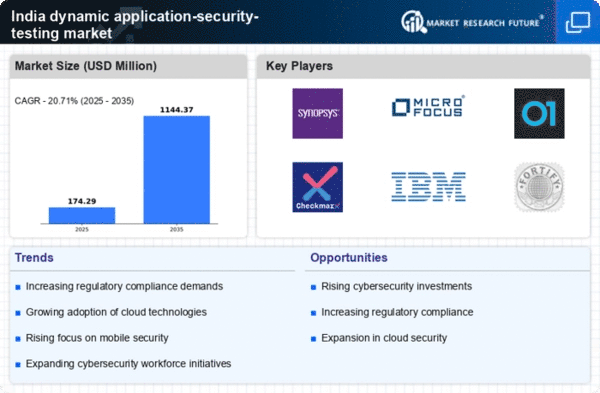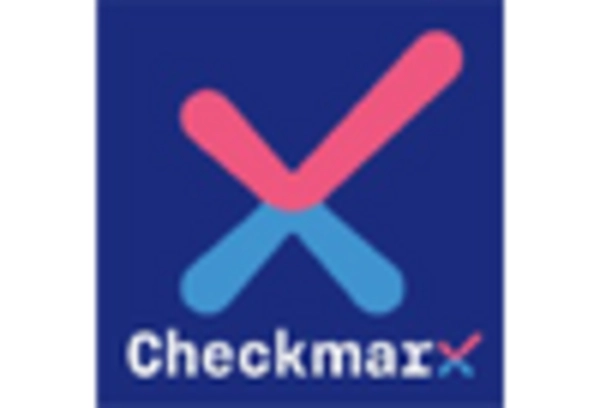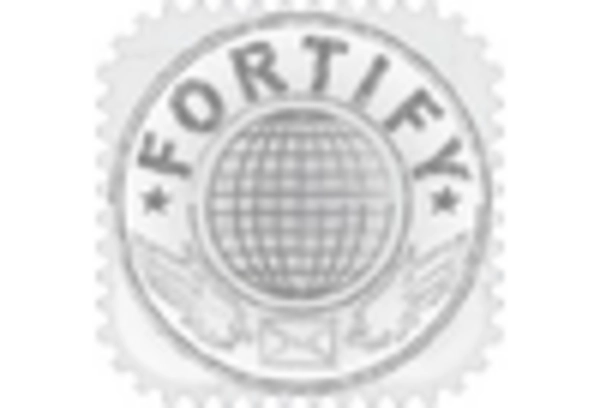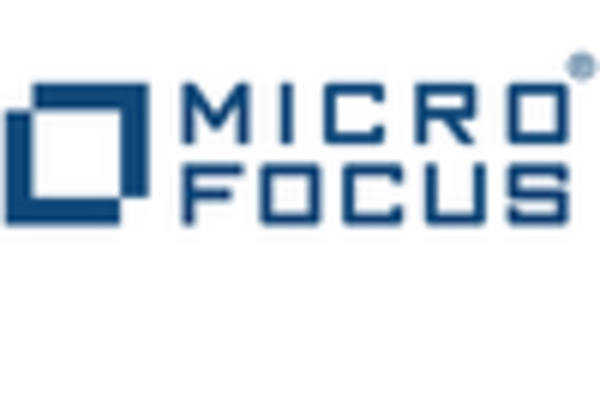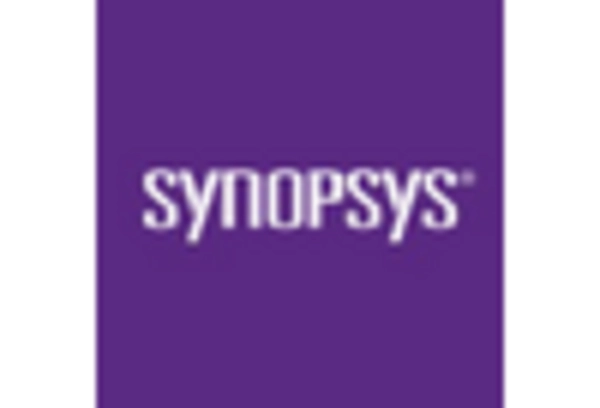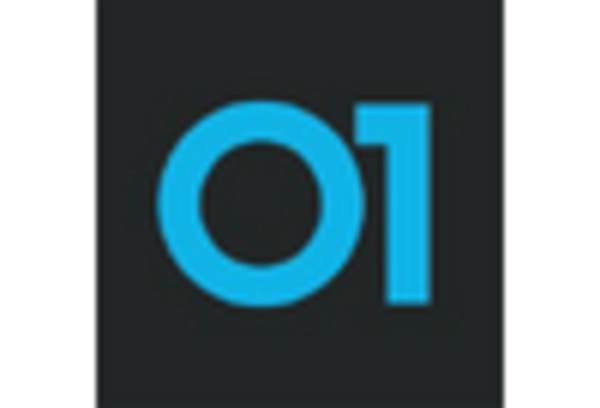Rising Cybersecurity Threats
The dynamic application-security-testing market in India is experiencing growth due to the increasing frequency and sophistication of cyber threats. Organizations are recognizing the necessity of robust security measures to protect sensitive data and maintain customer trust. In 2025, it is estimated that cybercrime could cost businesses globally over $10 trillion annually, prompting Indian companies to invest in dynamic application security testing solutions. This proactive approach not only mitigates risks but also aligns with the growing emphasis on digital transformation across various sectors. As businesses transition to cloud-based services and mobile applications, the demand for effective security testing solutions is likely to surge, driving the market forward.
Growing Digital Transformation
As businesses in India undergo digital transformation, the dynamic application-security-testing market is poised for expansion. The shift towards digital platforms necessitates the implementation of security measures to protect applications from vulnerabilities. In 2025, it is projected that the digital economy in India could reach $1 trillion, further emphasizing the need for robust security solutions. Organizations are increasingly aware that security must be integrated into the development lifecycle, leading to a rise in demand for dynamic application security testing tools. This trend indicates a shift in mindset, where security is viewed as a critical component of business strategy rather than a mere compliance requirement.
Emergence of DevSecOps Practices
The adoption of DevSecOps practices is transforming the dynamic application-security-testing market in India. By integrating security into the development and operations processes, organizations are able to identify and address vulnerabilities early in the software development lifecycle. This shift is likely to enhance the efficiency of security testing and reduce the time to market for applications. As more companies embrace DevSecOps, the demand for dynamic application security testing tools is expected to rise. In 2025, it is anticipated that the market will see a significant increase in the adoption of these practices, reflecting a broader trend towards agile and secure software development methodologies.
Government Initiatives and Support
The Indian government is actively promoting cybersecurity initiatives, which significantly impacts the dynamic application-security-testing market. Programs aimed at enhancing national cybersecurity infrastructure and fostering innovation in security technologies are being implemented. For instance, the Cyber Swachhta Kendra initiative aims to create a secure cyberspace, encouraging organizations to adopt advanced security measures. This governmental support is likely to stimulate investments in dynamic application security testing, as businesses seek to comply with national standards and leverage available resources. The market could see a substantial increase in demand as companies align their security practices with government regulations and initiatives.
Increased Awareness of Data Privacy
The dynamic application-security-testing market in India is benefiting from heightened awareness regarding data privacy among consumers and businesses alike. With the introduction of regulations such as the Personal Data Protection Bill, organizations are compelled to prioritize data security. This legislative framework is likely to drive demand for dynamic application security testing solutions, as companies seek to ensure compliance and protect user data. The market may witness a surge in investments as businesses recognize the importance of safeguarding personal information, thereby enhancing their reputation and customer trust. This growing focus on data privacy is expected to be a key driver for the market.


